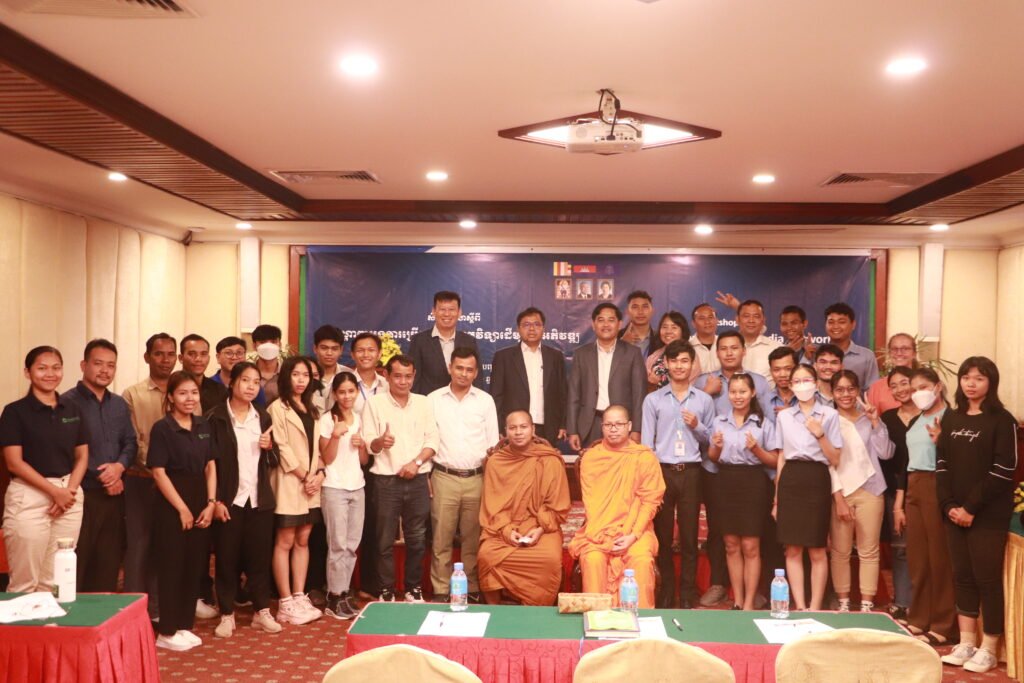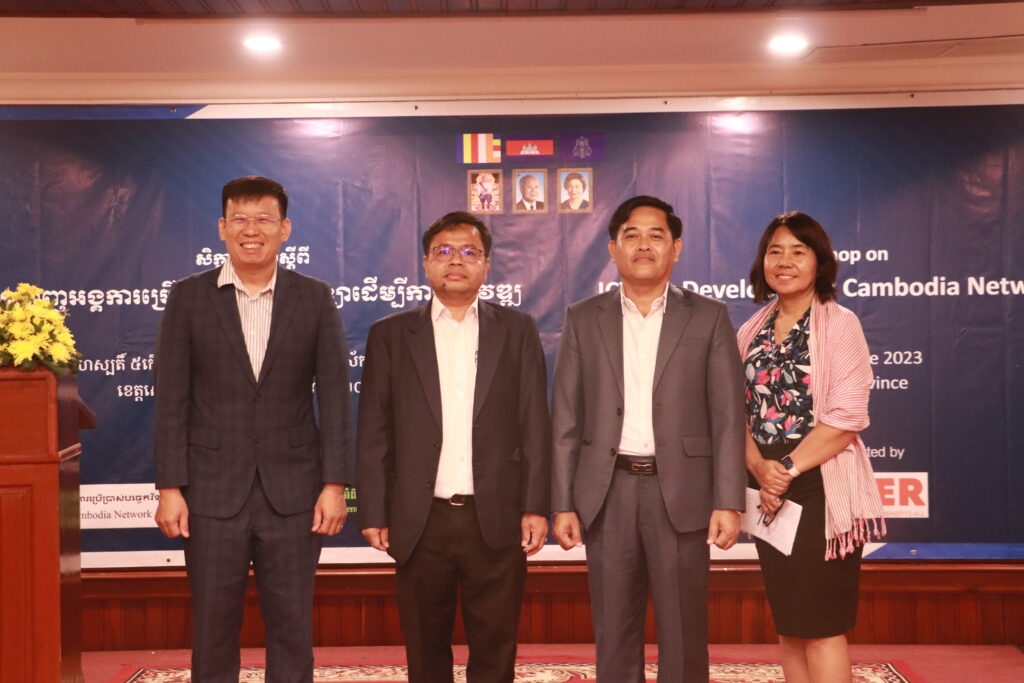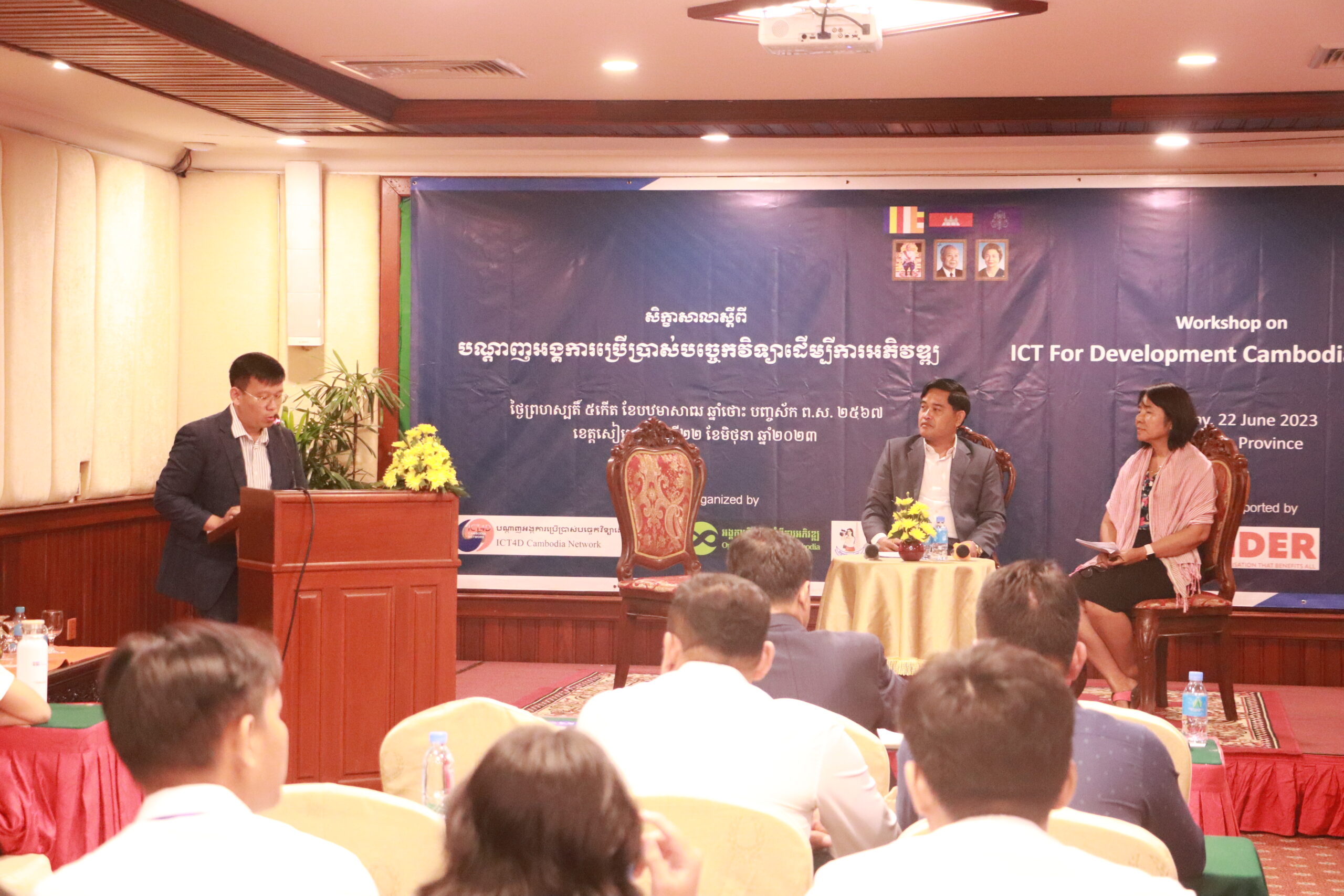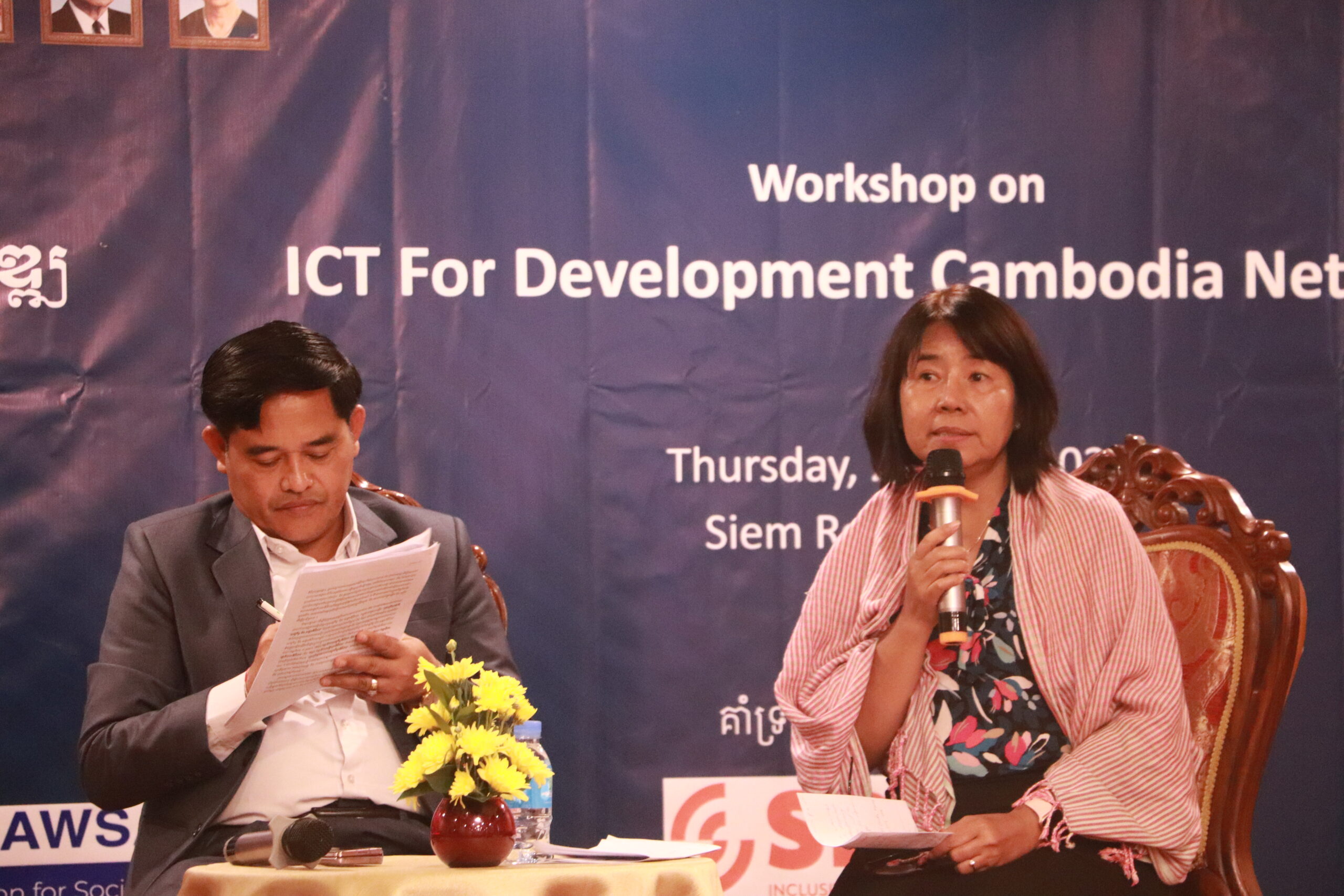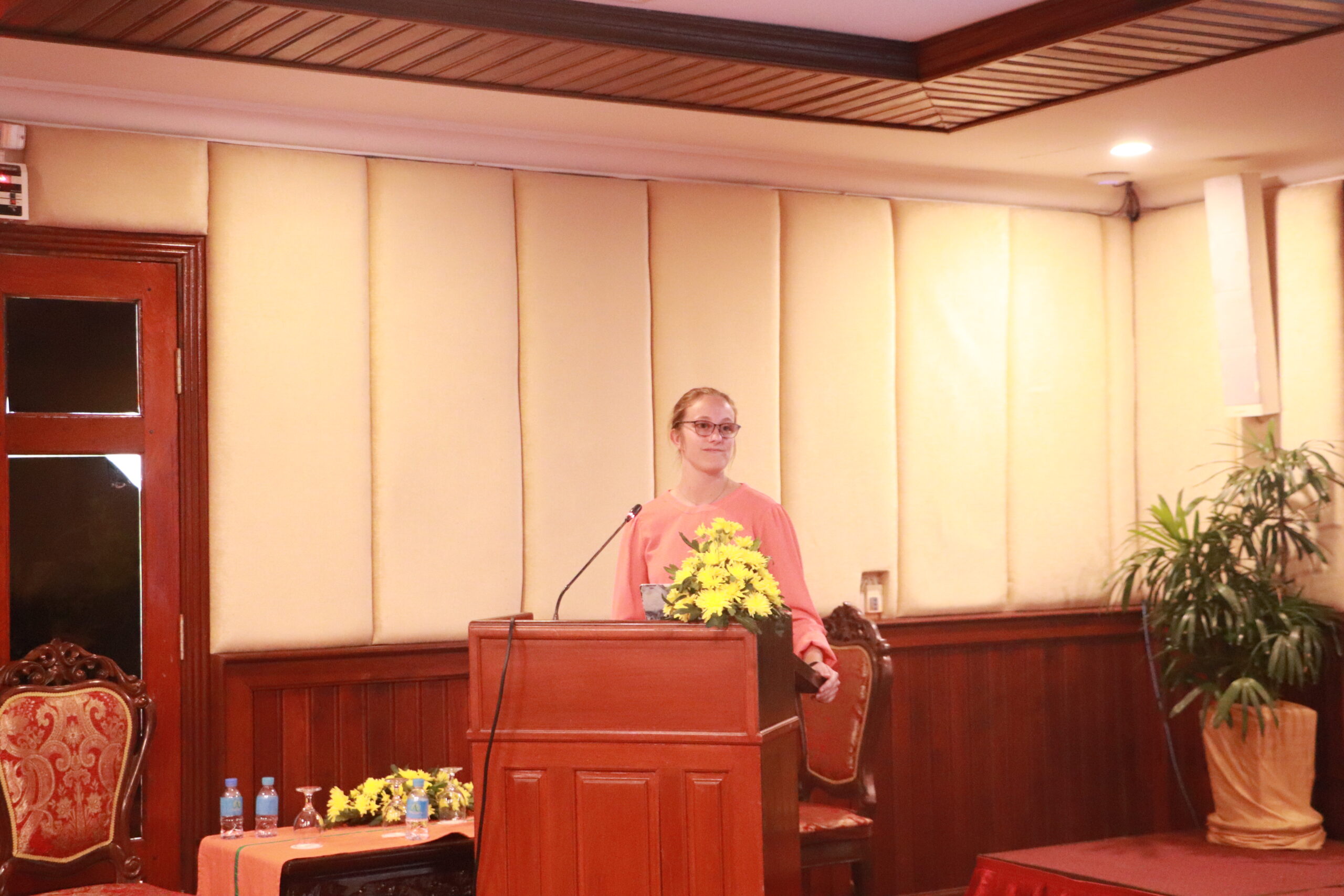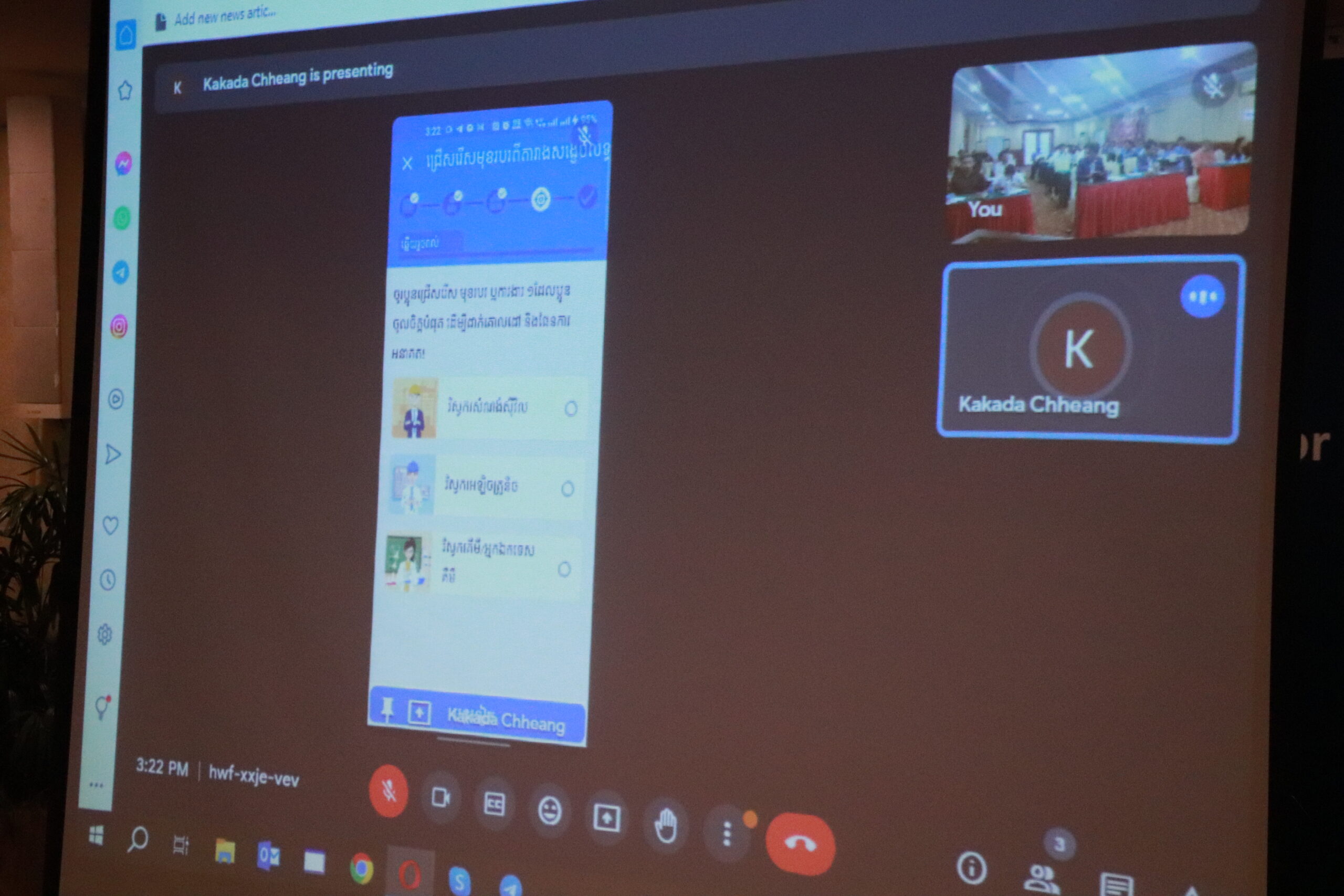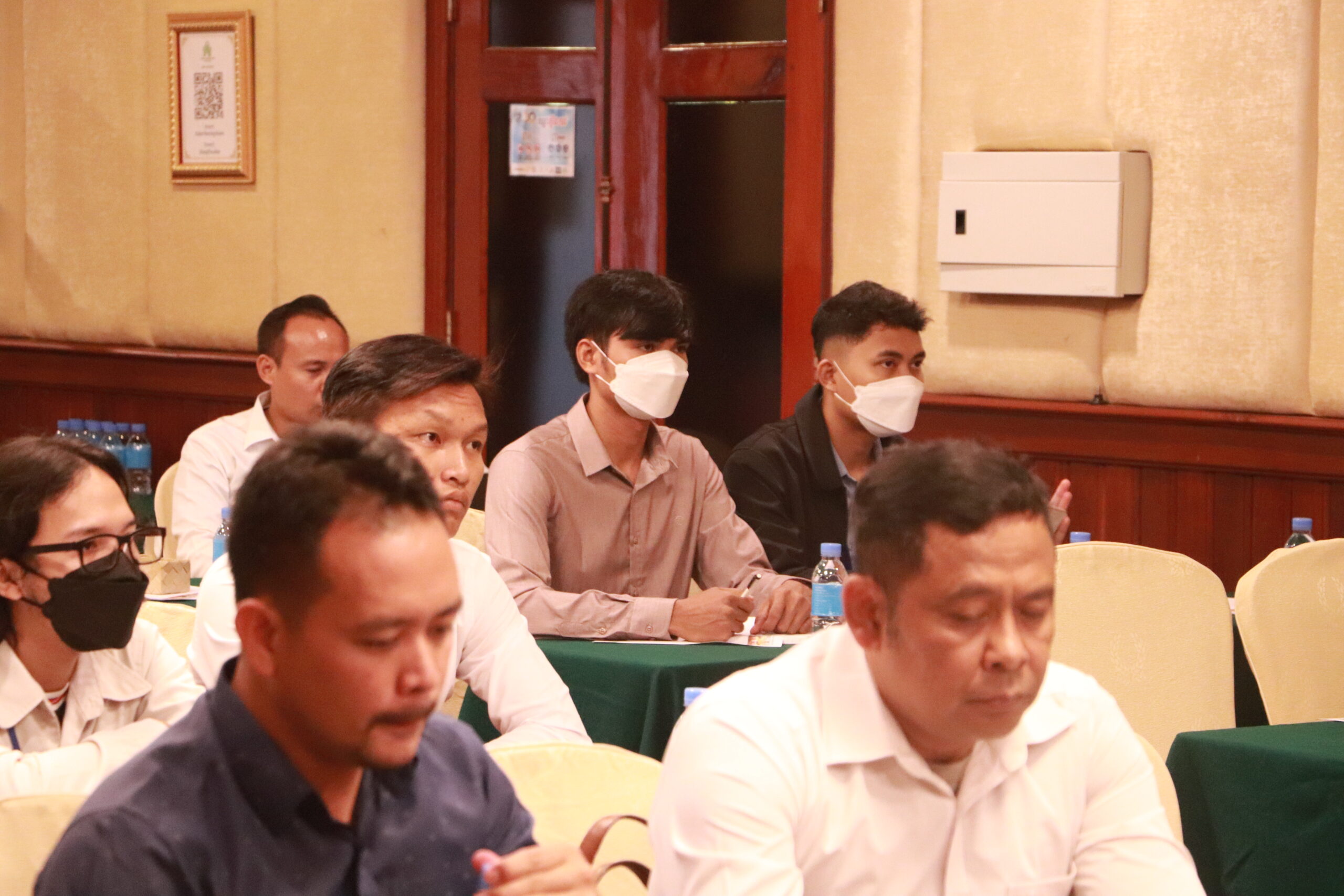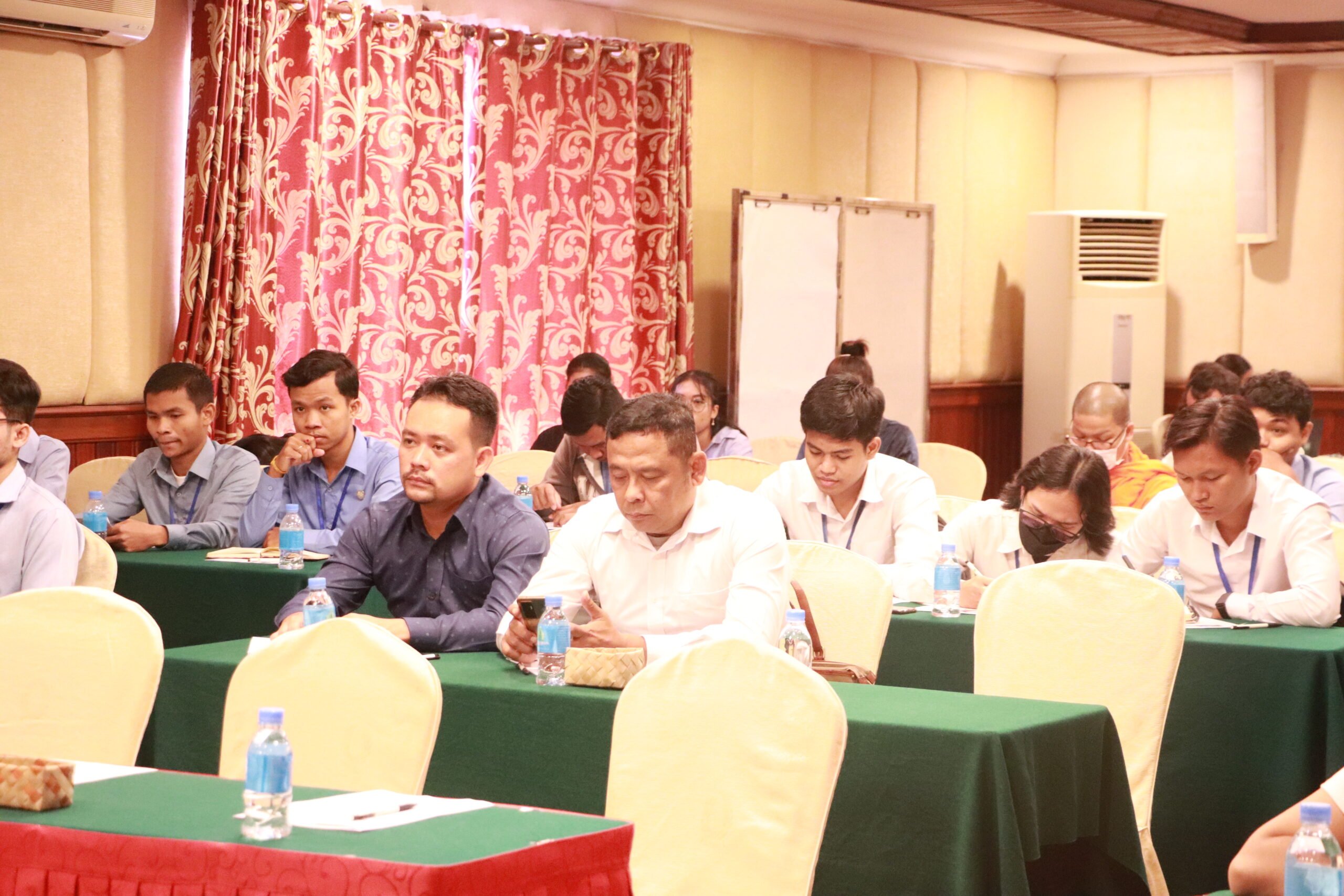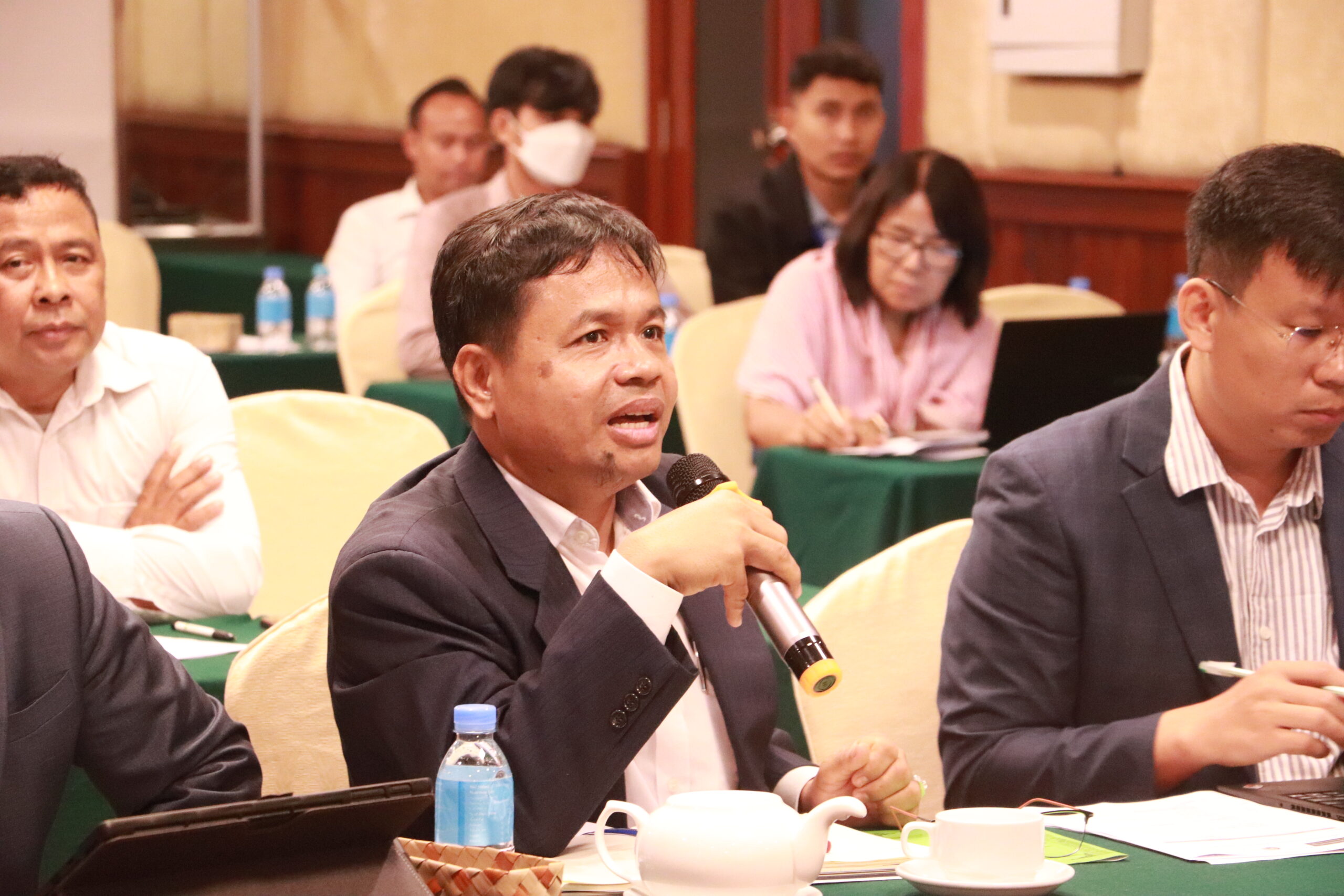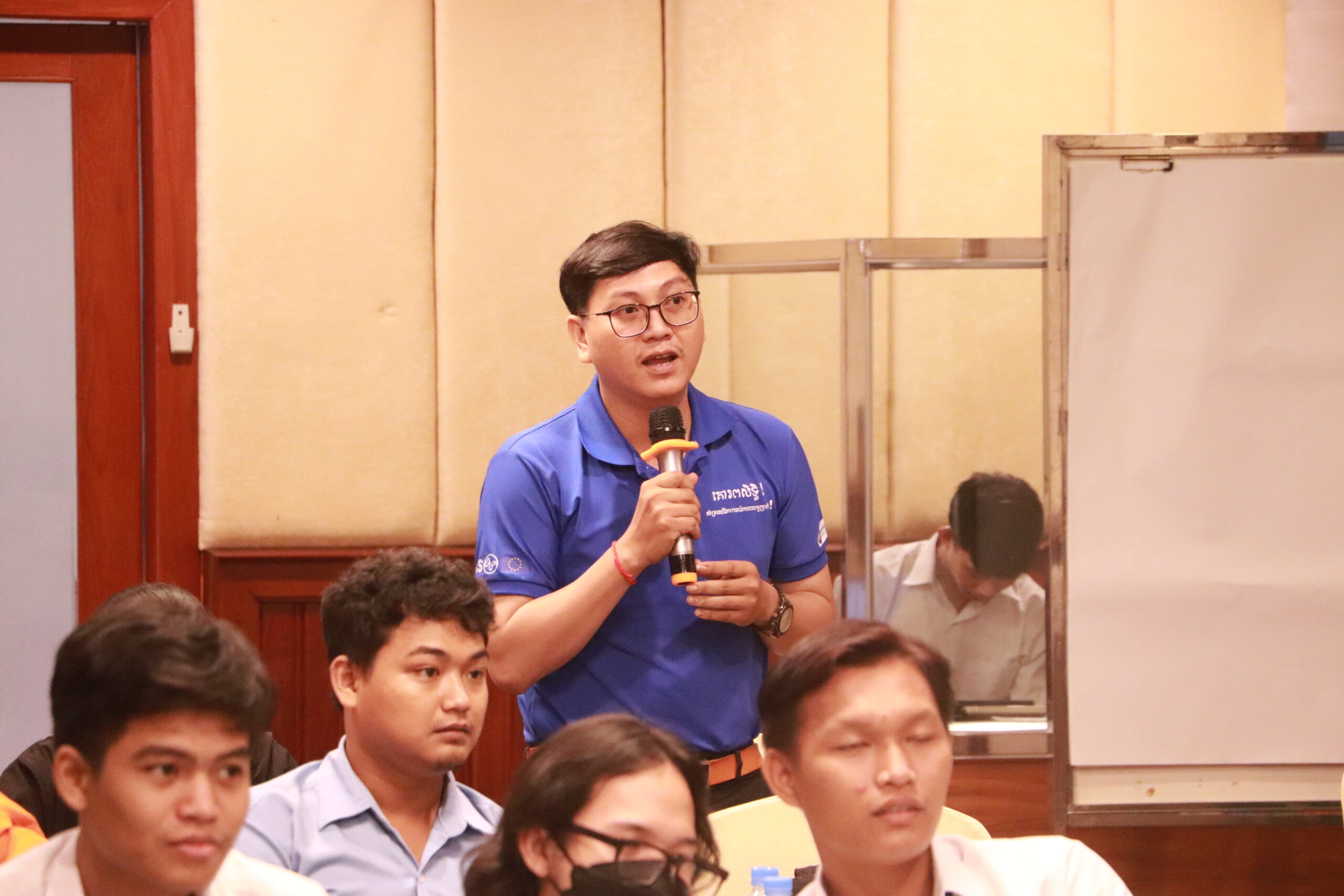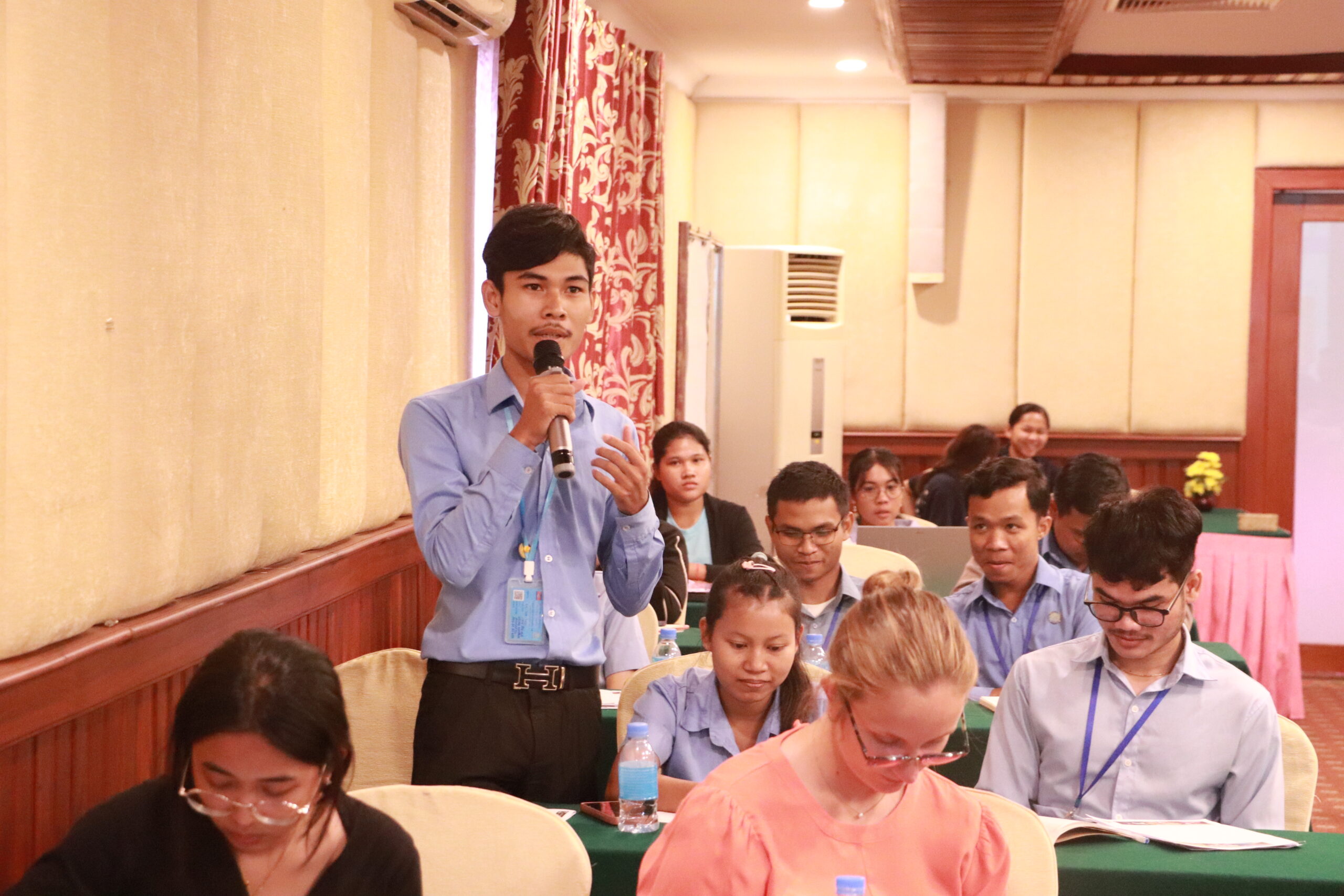ICT4D Cambodia Network workshop
The increasing utilization of Information and Communication Technology (ICT) tools has had a huge impact on the livelihood of Cambodian people in what is often called the “Industrial Revolution 4.0”. Recognizing the inevitable evolution toward digital change, the Cambodian government has been preparing to digitalize its work and the process of delivering its public services. In line with the new Digital Economy and Society Policy Framework, the government has been working on new digital laws and policies, including an Open Data Policy, a National Internet Gateway, and others. The discussion around the digitalization process and digital transformation of the government are limited, leaving a big understanding gap between the policy-makers and citizens.
Amidst this current expansion of the ICT sector and trends in Cambodia, the ICT for Development Cambodia Network (ICT4D), on 22 June 2023, organized a workshop on ICT for Development in collaboration with its core members, including Open Development Cambodia (ODC), KAWSANG, and the Women’s Media Center of Cambodia (WMC). The workshop was organized in Siem Reap province and brought together 41 participants from Phnom Penh, Siem Reap, Battambang, and Kampong Thom province, including network members, representatives of the Siem Reap Provincial Administration, the Provincial Department of Posts and Telecommunications, civil society organizations (CSO), the private sector, and university students.
The ICT for Development Cambodia Network (ICT4D), supported by the Swedish Program for ICT in the Developing Regions (SPIDER), primarily focuses the discussion on various aspects related to the development of the ICT sector in Cambodia by providing a valuable platform for knowledge exchange, fostering partnerships, and addressing critical issues related to open data policies, data governance, data transformation, and its impact inclusively on citizens.
The event
To kick-start the event, Mr. THY Try, Executive Director/Editor-in-Chief of ODC, provided welcoming remarks, specifically highlighting the importance of the new government’s policy of Digital Economy and Society Policy Framework 2021-2035. The policy, aiming to accelerate economic growth, essentially focuses on three main pillars: digital government, digital business, and digital citizens, in order to improve the economy by encouraging people to use technology for their own benefit. He observed that data governance is a major concern in today’s digital transformation process. He continued that all data is gathered, stored, and processed by big tech companies like Facebook and Google. Thus, those companies could utilize this data to analyze the needs and wants of their customers. This concern should be brought to the table. On the other hand, Mr. Try also informed the participants that the main discussion of the workshop also focused on the draft law on Open Data Policy and the draft Personal Data Protection Policy. These policies, which are being drafted, will impact citizen’s personal data governance and limit access to public data. As these policies are not being implemented yet, Mr. Try stressed that the discussion on the implication of the new digital laws and policies is needed to raise awareness among citizens and relevant stakeholders.
Following the welcoming remark, Mr. CHOEK Kimchun, Deputy Director of Siem Reap Provincial Administration, gave an opening remark by pointing out the impact of the Fourth Industrial Revolution on the livelihood of the citizens. The latest development of the government’s framework includes digital government, digital business, and digital citizens on which the Cambodian people should familiarize themselves to catch up with the technology. Informing the participants, the Siem Reap provincial representative confirmed the importance of maximizing the capacity of ICT tools by using them to facilitate their routine tasks, including sending out announcements and invitations, answering citizens’ inquiries, and broadcasting information. On the other hand, he mentioned that if digitalization is not used under control or is mismanaged, it could lead to the manipulation of digital data, an increase in cybercrime rate, or even affect data security and privacy.
After the opening remarks, the ODC team presented and demonstrated the ODC website to all participants. Ms. KOEM Chhuonvuoch, Natural Resource and Land Editor – Researcher / Project Coordinator, showcased how the ODC website can be benefitted to all participants and, specifically, the university students who need data and information for their research and study. The ODC website also benefits the work of government officials when they require data and accurate information to make the decisions and draft policies that directly influence the citizens. Additionally, the ODC team also presented its Learning Platform: ODC’s new online knowledge-sharing portal that disseminates data and information for the wider CSO community and other interested stakeholders. A question was raised in relation to the types of data that can be shared and stored in the Learning Platform. The ODC team confirmed that any data that the stakeholders want to share with the public to access and use can be uploaded to the new platform. The ODC team also warned that personal and private data should not be uploaded as this may negatively impact the owners themselves. The participants also urged ODC to share the portal with the public further so that they can share data and information that can be useful and beneficial for the public.
After that, a panel discussion was organized on the topic of Development and Trends of ICT for Development in Cambodia. The first speaker, Mr. SOK Seyha, Director of the Provincial Department of Post and Telecommunications in Siem Reap province, profiled how ICT tools can facilitate the growth and improvement of the new Digital Economy and Society Policy Framework.
To build the officials’ technical capacity in preparation for digital transformation, the Ministry of Post and Telecommunications has been working on digital literacy training; having the Cambodia Academy of Digital Technology cultivate digital knowledge and skills by prioritizing three specific areas, such as (1) Digital Leadership, (2) Digital Talents in both the public and private sectors, and (3) Penetrating the local community level. Digital Government is a necessary key actor in the preparation of the digital economy and society, in which the government takes the lead in using digital technologies to respond to the direct needs of the citizens and to enable businesses and citizens to adopt the digital sector.
In terms of utilizing ICT in public service delivery, Mr. Seyha indicated that the Post and Telecommunications Ministry is implementing the use of online QR codes to verify official documents. This has become a big step toward a digital society as the government is digitalizing its method of responding to citizen’s needs. Mr. Seyha said that now people can verify any official document using verify.gov.kh instead of doing it in person. Additionally, the MPTC’s Speed Test is another ICT tool from the government to help internet users track their internet speed and improve the internet service at their own convenience.
A representative from the Women’s Media Center of Cambodia (WMC) (a member of the ICT4D Cambodia Network), shared the current trend of the ICT tool practice in Cambodia. Ms. OUNG Chanthol – WMC’s Executive Director – shared about “Cross-Check WMC”, an ICT solution to debunking fake information online. In the context of digitalization, access to accurate information has become an essential part of the decision-making process for individuals and policy-making. Ensuring the accuracy of information using ICT tools is a method for leveraging access to accurate and truthful information.
A question was raised regarding trust-building among the public in the digitalized society.
Ms. Chanthol replied, touching upon trust-building and partnership between stakeholders and the government. She mentioned that to build trust among the public, digital security and safety are needed and ensured. Additionally, newly drafted digital laws, including the National Internet Gateway, may have negative impacts on open data access and the digital development of the Cambodian economy amidst the government’s efforts to transform society to catch up with the latest Industrial Revolution. She urged the government to reconsider dropping this legislation, arguing that having enough access to data and information helps the government to address the need of the citizens and draft policies that better respond to the rights issues.
In response to the trust-building mechanism, digital security has to be ensured for all citizens, as noted by Mr. Seyha. The Post and Telecommunications official suggested that currently, there is no data center where the government’s data from each ministry is stored. The current practice has seen each ministry have its own data storage and employ different digital tools in their respective institutions and have yet to synchronize with one another. To achieve inter-ministerial digital connection across the government, Mr. Seyha mentioned that the government and the Ministry of Post and Telecommunications are building a data center for all ministries to access and share information with each other to improve public service delivery. He indicated the importance of the network connections in improving the digital project of the government. He confirmed that there were more than 800 fiber optic network antennas across Siem Reap province, with 12 internet service companies having licenses to operate the overhead cable network, while there were only two companies with the licenses to operate an underground fiber optic network. These two companies include Telecom Cambodia, a state-owned enterprise, and a Chinese company, Cambodia Fiber Optic Communication Network.
To end the discussion, Mr. SOK Seyha indicated that capacity-building among the government is needed to ensure that the process of digital government transformation goes smoothly as planned. As government officials are the crucial actors in digitalizing the economy, equipping them with digital and data literacy leverages their capacity and knowledge of digital skills. Likewise, Ms. OUNG Chanthol encouraged women to study ICT skills and literacy and STEM education to empower gender balanced promotion in the digital society and take part in high-level policy-making.
To shed light on the implication of digital laws on Small and Medium-sized Enterprises (SMEs) in Cambodia, there Ms. Lauren Daffenberg, legal research intern at Open Development Cambodia (ODC), presented laws that govern SMEs and technology. She explained that the National Internet Gateway may have an impact on the small business economy. Thus, it will raise the cost of many products and services for consumers due to slow and unreliable internet, which is not ideal for domestic and international businesses. For Cambodia specifically, the data protection laws do not have a full body of regulations. However, it is important for Cambodia to still work towards data protection because Cambodian and international consumers are urging for more protection. Therefore, this will also help businesses expand into international markets if their data is securely protected. Moreover, it would develop Cambodia’s economy as a whole.
Next, KAWSANG’s representative, a core member of our network, Mr. CHHEANG Kakada, virtually presented Trey Visay, a mobile application that aims to help high school students discover their university major and life’s interests by doing evaluations based on their likes, interests, hobbies, and personalities. KAWSANG has also worked with the Ministry of Education, Youth, and Sport on this Trey Visay project. Trey Visay is an innovative ICT tool designed to unlock students’ full potential in higher education. By harnessing the power of technology, this application provides valuable resources and support to students, enabling them to thrive and succeed in their educational journey. Mr. Kakada suggested Trey Visay serves as a prime example of how ICT tools can drive positive change and contribute to the development of education systems. In addition, the Trey Visay app also contains information about public and private schools and universities. Information and news about jobs are also available.
Further, Mrs. OUNG Chanthol, Executive Director of the Women Media Centre of Cambodia (WMC), presented ‘Cross-check WMC’. In the context of the digital age, access to accurate information has become an essential part of the decision-making process for individuals and policy-makers. Ensuring the accuracy of information using ICT tools is a method for leveraging access to accurate and truthful information. The Cross-check WMC is needed to ensure that Cambodians receive accurate news and information from the media. Its main objective is to promote ethical and accurate practice by Cambodian journalists and equip Cambodian citizens to question and verify their news sources to determine whether they are accurate. The presentation by the representative of the Women’s Media Center of Cambodia provided a crucial key for the participants to utilize in accessing daily news and information.
The final program of the workshop saw Mr. NGOV Chihor, ODC’s Communications Manager, presenting the Cambodia ICT and Digital Forum (CamIDF), an ODC program that is committed to democratizing ICTs and leveraging its full potential while ensuring that the digital revolution benefits all citizens. Mr. Chihor presented the background and how to become a member of the CamIDF to all participants. Additionally, he shared the opportunity to attend the Internet Governance Forum 2023 in Japan, which will sponsor CamIDF members only. In his presentation, Mr. Chihor encouraged all the participants to register to become CamIDF members so that they will be informed about various opportunities and discussions on digital-driven topics. After the workshop, four participants registered as CamIDF members and expressed their interest in learning more about the topic for upcoming Forums.
To conclude the workshop, Mr. THY Try provided his closing remarks and reinstated the importance of ICT in the digital movement in Cambodia. He mentioned that the process of transforming Cambodian society to realize its digital economy would not be possible without assistance from ICT tools and development. To echo the result of the workshop’s discussion, Mr. Try said ODC would submit the workshop’s outcome report to relevant ministries and share with them the current ICT trends and development generated by the Network’s members. He informed the participants that there would be two more workshops organized under the ICT4D Cambodia Network, and participants would be welcome to attend.
